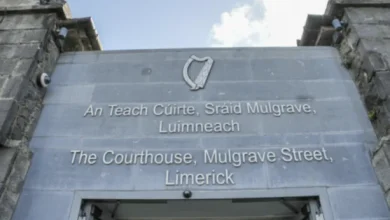How many people moved to Ireland last year and how many were asylum seekers?

Most countries regard a declining population as a threat, and rising population as a good thing. This is one reason why the ageing societies of western Europe have welcomed millions of immigrants in recent decades, as their native populations have declined.
At Government buildings on Wednesday, Minister for Justice Jim O’Callaghan was at pains to frame Ireland’s problem as one of immediate capacity, not underlying demographics.
Population increase is a good thing, O’Callaghan told reporters. But not at this rate – it’s increasing too quickly for us to cope.
O’Callaghan said that the Irish population was growing at a rate of 1.6 per cent a year, which he said was seven times the EU average, and the highest in the European Union.
CSO figures suggest that in the 12 months to the end of April this year, the Irish population increased by 78,300 people to 5,458,600, an increase of 1.4 per cent.
This is a spanking rate of increase, second in the EU, according to Eurostat statistics from 2024. Ireland’s population increased by a rate of 16.3 per 1,000 inhabitants, second to Malta (19 per 1,000 people), and far ahead of the EU’s growth as a whole, which is 2.4 per 1,000 people.
The EU growth is due to migration; the bloc has seen an underlying decline in population – ie, before immigration numbers are counted – since 2012.
There is a natural increase in the Irish population, but the growth is being turbocharged by immigration.
Minister for Justice Jim O’Callaghan said Ireland’s population was increasing too quickly. Photograph: Brian Lawless/PA Wire
In the 12 months to the end of April this year, CSO numbers report, there were 125,300 immigrants. This was the fourth successive 12-month period in which more than 100,000 people immigrated to Ireland.
[ Government has ‘no intention of becoming a landlord’ for asylum seekers, says Simon HarrisOpens in new window ]
Of those, 31,500 were returning Irish citizens, 25,300 were other EU citizens, and 4,900 were UK citizens. The remaining 63,600 immigrants were citizens of other countries. These include asylum seekers, people coming to Ireland under family reunification rules, Ukrainians (who are automatically entitled to temporary protection), those who are granted work permits and those on student visas.
There was a fall in emigration in the same period, though 65,600 people still departed the State in the 12 months to April 2025. There was a natural increase of 18,600 people in the State, comprised of 54,400 births and 35,800 deaths.
The measures announced by Government seem designed to bring down the number of people coming into the State seeking asylum and those seeking to join family members who are legally resident here.
In response to questions from The Irish Times, O’Callaghan revealed that about 23,000 people were granted permission to come to Ireland last year under the family reunification process. The criteria for that process will now be narrowed.
There are, O’Callaghan says, too many people coming to Ireland to seek asylum who are not entitled to it. About 13,000 are expected to come this year, a decline from about 18,000 last year.
This is, he says, “too high”. The “overwhelming majority” have their applications rejected at first instance, he said, citing a figure of 81 per cent. About 70 per cent of those refused appeal the decision, and 60-70 per cent of those decisions are appealed.
Working those numbers on this year’s 13,000 figure, it would mean about 5,050 – 39 per cent – of claims would be eventually accepted.
It means while most applicants for international protection are refused, it’s hard to characterise it as an “overwhelming majority”.
The Government moves are about two things: first, it’s about the current capacity in the system, which is stretched beyond breaking point, and the consequent pressure on accommodation, exacerbating the housing crisis.
Second, it’s about the tide in public and political opinion against migration, visible all over Europe. Electorates throughout the EU have told their politicians: reduce immigration or we will elect someone who will. Ireland has had a milder version of this so far. But we are hardly immune.
[ What are the new family reunification rules for migrant workers?Opens in new window ]





